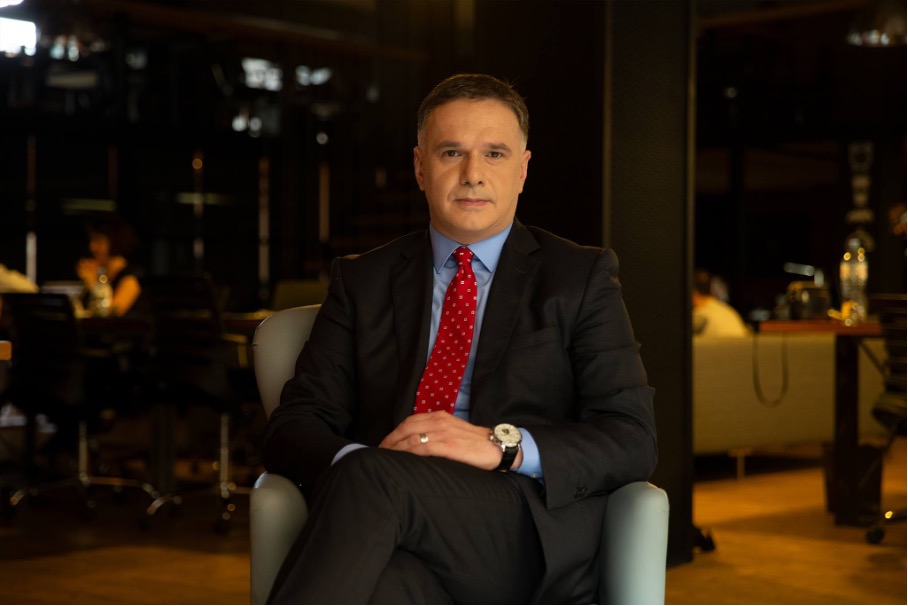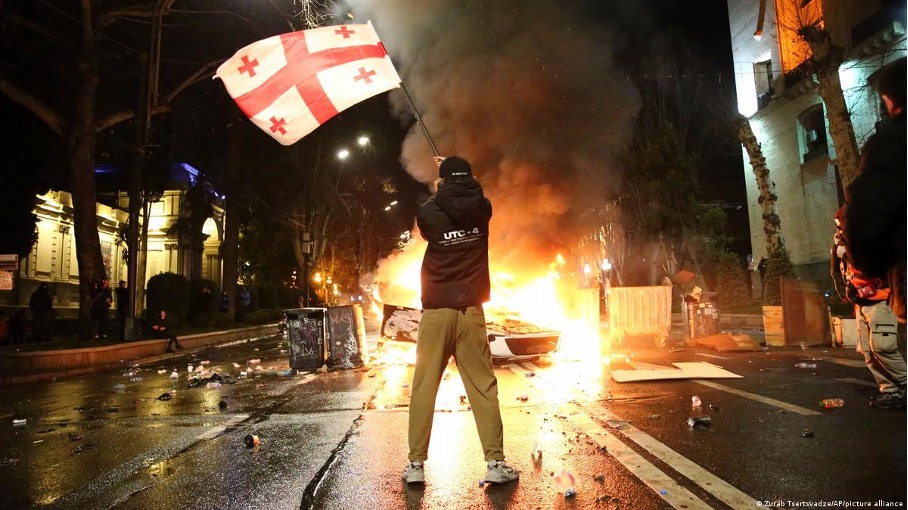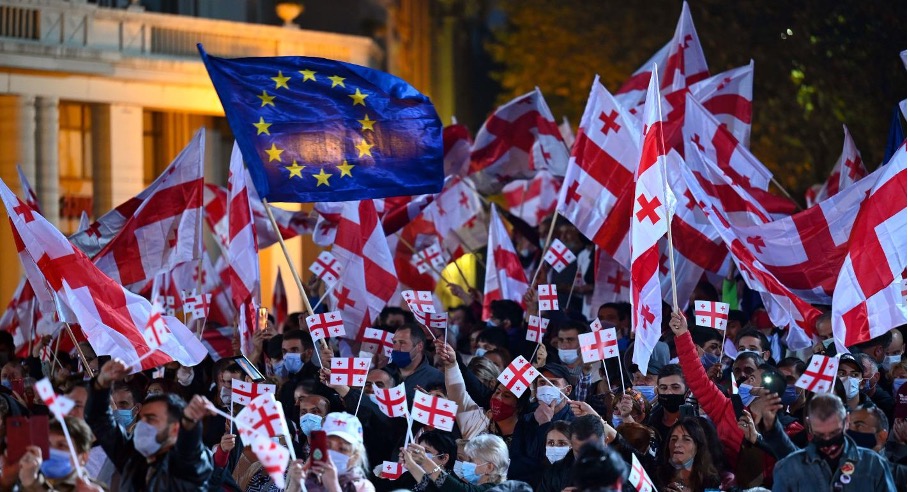Author
Vita Verheij

Beeld: ICC Georgia
Georgia is in danger of falling more and more under Russian influence. This is the result of the Georgian government tearing down state institutions, anti-democratic rhetoric and attacking civil society actors which are safe-guarding democratic values. D66 International spoke to founder of the Chavchavadze Center for European Studies and Civic Education, Zaza Bibilashvili, about the current developments in Georgian politics.
Vita Verheij

Beeld: ICC Georgia
As Zaza joined our online call, he began to explain how he had just witnessed the Georgian Prime Minister, Irakli Garibashvili, declare to the public how he intends to exterminate the internal threat that is active in the country. This threat, the prime minister states, is the existence of a rebellious group within society. Garibashvili describes this group as the ‘fifth column’, which aims to drag Georgia into a war with Russia. Zaza jumps in to set the record straight: ‘anyone who opposes the government, both in parliament and civil society, risks being called out by the government as part of the fifth column.’
The speech of the Prime Minister was a response to an unstable couple of weeks in Georgia. The streets were filled with protesters in the beginning of March due to a new law that the government sought to implement. The law is identical to an older Russian foreign agents law which requires anyone who receives support from outside of the country to register as ‘ foreign agents’. At that time, this Russian law resulted in a de facto destruction of civil society and free speech in Putin’s Russia. If this law gets accepted, the Georgian authorities would have the power to label charitable and non-government organizations as ‘agents of foreign influence’, thus making it nearly impossible for them to continue operating. As it will expose them to severe social and political pressures.
The implementation of the law was explained to the public as a method to prevent foreign countries infiltrating Georgian society. However, the real aim was to neutralize any opposition to the government or criticism of its policies by civil society actors who are funded mostly by EU or US sources. The law has now been recalled, but the intentions of the government and its anti-democratic rhetoric and practices remain a significant problem. ‘They are not hiding their goals and will surely try to find another way to pursue this anti-democratic Russian agenda’, Zaza explains.
The Georgian government is heavily under the influence of one powerful oligarch, Bidzina Ivanishvili, who has the ability to translate his personal interests into policy that happens to suit his financial gain. At various times since the end of 2012, high government positions have been held by people with personal allegiance towards the billionaire. ‘It is a scary landscape for me and anyone that opposes the government.’ Zaza adds. ‘Ever since the election of the current government it seems they have taken the validity of democratic values and the issues of national security in a rather peculiar manner.’ For example, the government has freed all prisoners who had been found guilty of Russian espionage. Per Russian demands, these prisoners were designated as victims of ‘political prosecution’ by the previous Georgian government.

Beeld: DW
While human rights and freedoms are being threatened on a daily basis, Georgia is also continuing their efforts to appeal to the European Union, which is an aspiration of many Georgian citizens. The country applied to become an EU member candidate in March 2022, a week after the Russian invasion of Ukraine. This is in line with a longer development, since Georgia has expressed interest in collaborative efforts with the EU since 1990s, and became a member of the Council of Europe in 1999.
With the current government working its way into Russian territory, they are essentially going against all the mandates and efforts of the EU to resolve the war in Ukraine. Georgian government officials have often stated that providing arms to Ukraine ‘is not the answer’ and that sanctions against Russia ‘are not working’.
So, is it not fair to assume that Georgia’s current government has no interest in joining the EU? ‘It does seem to many that the Georgian government’s priority is to pamper Russia, while its steps to get closer to the EU are much like a façade. The government appears to be playing a clever double game. It presents itself as being open to integrating European values, while at the same time questioning the ‘interference’ of the EU in the Georgian political system,’ Zaza says.
Upon considering Georgia’s application for candidacy, the EU Commission has made 12 recommendations to Georgia as a precondition to granting the country an EU candidate status. One of the recommendations is to reduce polarization in Georgia. However, there is very little polarization among Georgian people about the key issues of national importance. In reality, it appears that people are more united than ever in their collaborative efforts to both speak up against the government’s increasingly authoritarian ways and express their pro-EU preferences.
Zaza adds to this: ‘Now is not the time to “depoliticize”. Besides, how can you expect us to “depoliticize” when we face such an Orwellian reality?’
In the meantime, the Georgian government continues to impede civil liberties. While there is still free press, it is under great duress. Zaza tells me the story of a well-known journalist who was sentenced to jail for 7 years for using a private company car for his family. Simultaneously, other news outlets are facing legal, tax or statutory constraints. However, Zaza remains hopeful: ‘Irrespective of the differences among Georgians, we are united around our main goal, which is to live in a democratic country, with its rightful place among European family of nations.’

Beeld: Georgian Journal